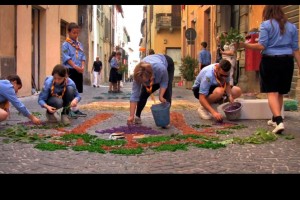Scouting the Differences

- Alli Kielsgard
- On June 26, 2014
In Italy boys and girls share the same uniforms and passion for Scouting
URBINO, Italy – On a sunny morning the playing field on the Fortessa – fort – overlooking this city is filled with Italian Scouts who, at first glance, mirror their U.S. counterparts. The members wear uniforms of shorts and shirts complete with kerchiefs and shoulder patches. Younger members are boisterous and energetic, while older leaders attempt to instill order.
But a closer look shows some serious differences, the first of which is hard to miss: There are no “boy” or “girl” scouts, just Scouts of both genders. And as these boys and girls, men and women, finally gather to start the day’s activity – joining a procession honoring the city’s patron saint – the anticipation and excitement written on their faces would be unusual anywhere.
Scouting in Italy, explains leader Veronica Dadi, is “not just an activity, it’s a lifestyle”.
The scouting movement in Italy is, of course, similar to its American cousin in many ways. Both are part of the World Organization of the Scout Movement, and share the same guiding principles of hard work, civic duty and personal responsibility.
But the differences are more numerous, and noticeable.
There are two scouting groups here. The Associazione Guide e Scouts Cattolici Italiani (AGESCI), associated with the Catholic Church, has roughly 177,000 members. The secular group Corpo Nazionale Giovani Esploratori ed Esploratrici Italiani (CNGEI) has about 12,000 scouts.
Italian scouting combined genders over the past 10-15 years.
Dadi, 25, said that move has resulted in greater respect and understanding. “Young teenagers are really embarrassed by [other] boys and girls,” she said. “With doing things together and friendship, they really learn how to respect one another.”
Dadi said scouting’s goal in Italy is to help members become good people and “be useful to others.”
For example, the scouts in Cagli recently participated in colletta alimentare – collecting food and other items for the poor. Natalia Toccaceli Blasi, 23, a Cagli leader, said those types of experiences help scouts become more responsible, offering an education unattainable anywhere else.
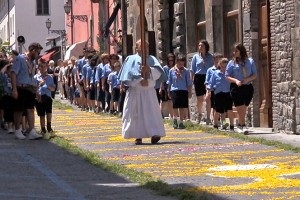
The scouts lead the local people and officials in the procession as they make their way around the town.
And because Italian scouts are more likely to continue with the movement later on in life, scouting here is often a family affair with children growing up to serve as age-group leaders after having children of their own.
The Lombardi family is one example.
Gregorio Lombardi, 25, a scout-turned-leader, explained he continuing a family tradition. His father was a scout-turned-leader, while his mother caught scouting passion as an adult from his dad.
And today scouting helped form the foundation Gregorio’s relationship with his girlfriend, Giada Todisco Grande, 25, another scout leader.
But there is one aspect scouting life Italians in the movement share with their American cousins: They are the victims of certain clichés. While Italian adults admire the maturity scouting encourages, members of the younger generation often see them as a too conformist. To them, scouting is seen as an uncool thing to do, especially when the person has no knowledge on the subject.
Dadi described how she and many of her scout mates were teased because they were scouts. She said the common thought among young people here is of a scout “being a loser.”
Judging by the excitement shown by the scouts of all ages on the Fortessa, that hasn’t diminished their passion for the scouting life.
Slideshow
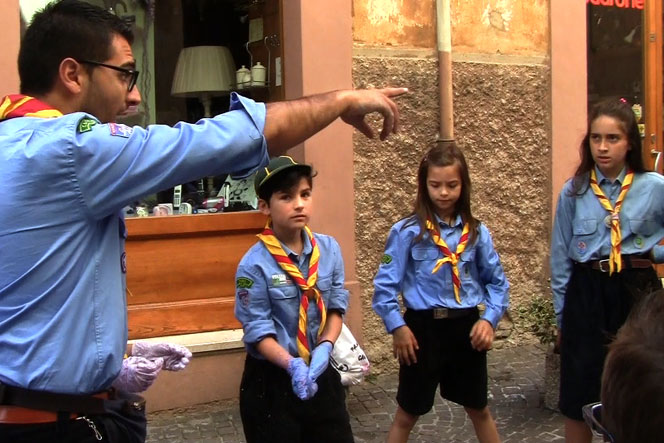
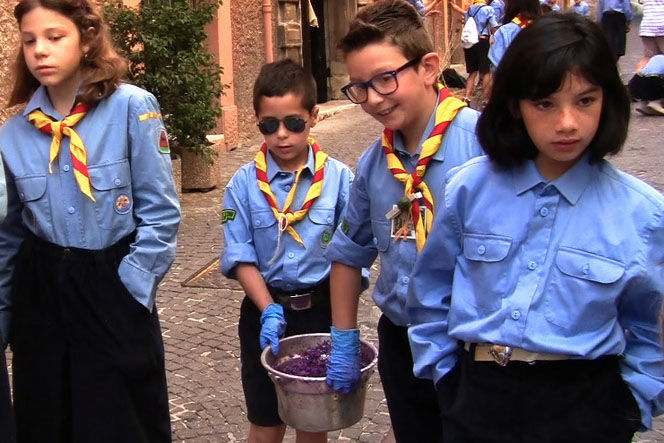

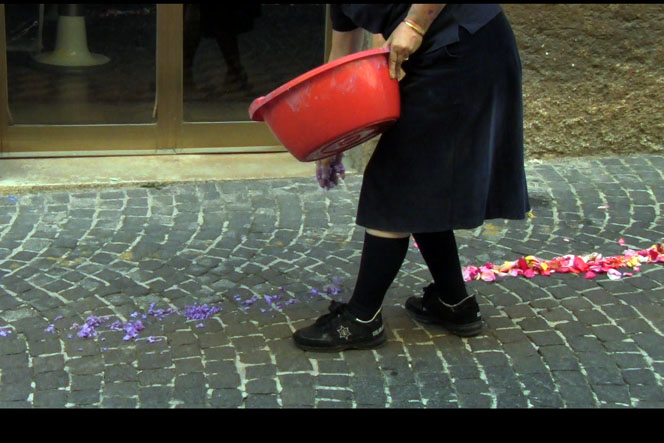
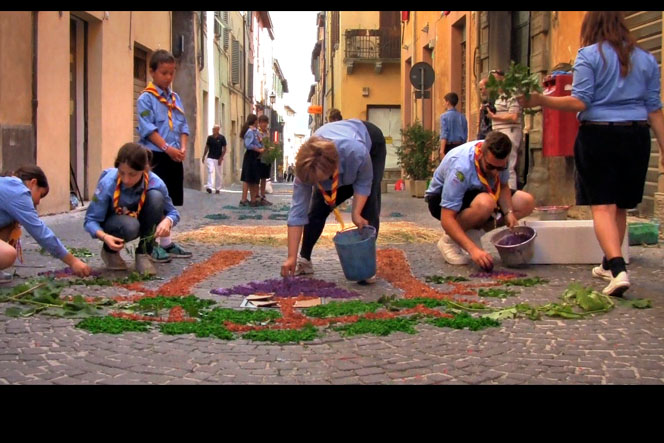
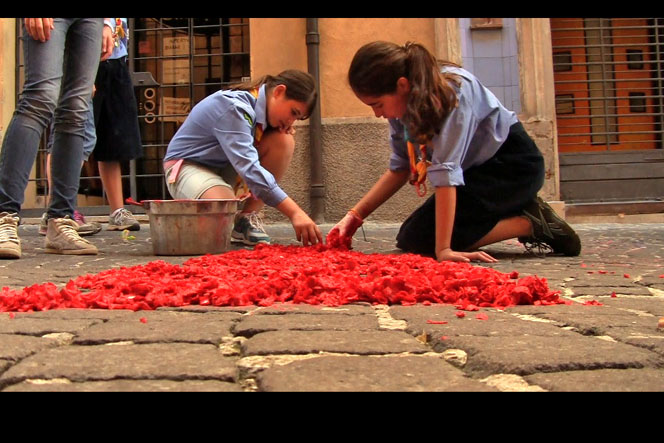


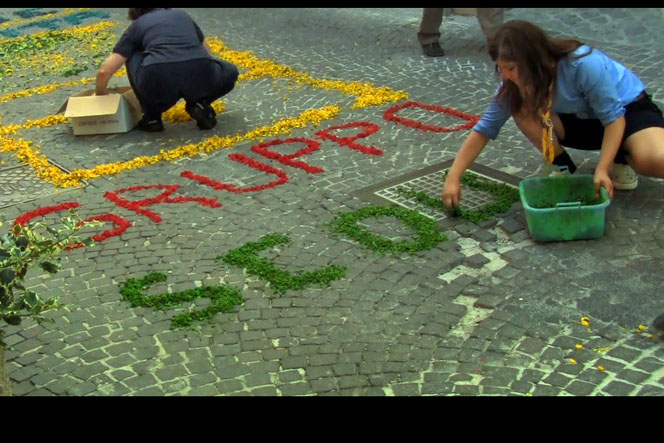
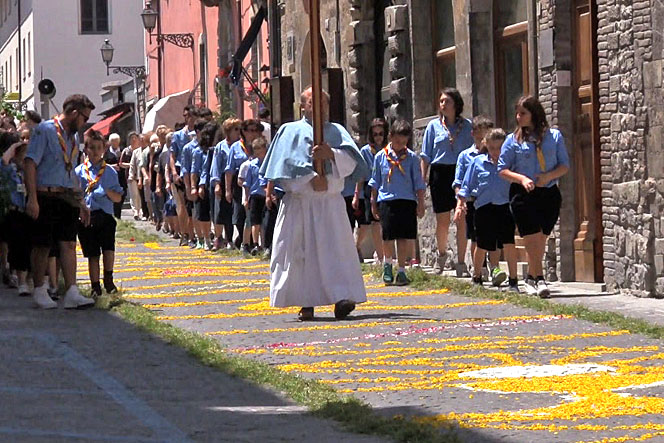
Video
Order Urbino Now Magazine 2014
 You can read many articles appearing on this website in Urbino Now Magazine 2014. To order a full-color, printed edition, please visit MagCloud.
You can read many articles appearing on this website in Urbino Now Magazine 2014. To order a full-color, printed edition, please visit MagCloud.Reporters
Can Aydoğan
Wes Casson
Olivia Condon
Katrina Delene
Klaire Dixius
Kylie Donohoe
Morgan Doss
Amanda Ellison
Victoria Ferris
Krista Flentje
Hailey Guyovich
Alli Kielsgard
Begum Kilicci
Meredith Kipp
Morgan Lynch
Olivia Lynch
Taylor Main
Olivia Martzell
Leslie McCrea
Kendall McNamee
Mary Menchel
Carson Monroe
Erin Mordhorst
Cori Noble
Urvi Patel
Kelsey Peck
Chris Raimondi
Summer Roberts
Whitney Roberts
Susan Rogowski
Jazmin Sahagun
Jamie Stotski
Landon Walker
J.J. Wilson
Promotional Video Project
Dimitri Daoulas
Jenna Fries
Cora Letteri
Abby Riggleman
Malorie Stone
Natasha Virdy
Story Categories
Past Urbino Projects
 Read stories and view the photography and video from last year's website.
Read stories and view the photography and video from last year's website.
2013 Urbino Now App
 Interactive Apple iPad app covering culture and travel for visitors to Urbino and Le Marche.
Interactive Apple iPad app covering culture and travel for visitors to Urbino and Le Marche.
2012 Website
 Read stories and view the photography and video from last year's website.
Read stories and view the photography and video from last year's website.
2012 Urbino Now Magazine
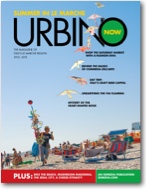 Explore past coverage from the 2012 edition.
Read all 30 magazine articles online or visit MagCloud to order a printed copy of Urbino Now 2012.
Explore past coverage from the 2012 edition.
Read all 30 magazine articles online or visit MagCloud to order a printed copy of Urbino Now 2012.
2011 Website




